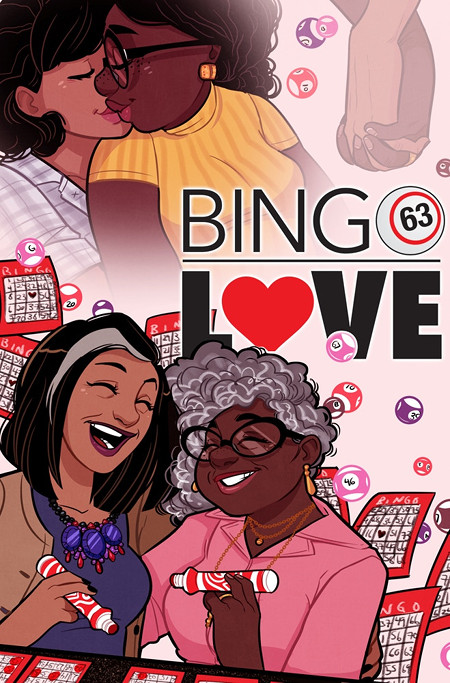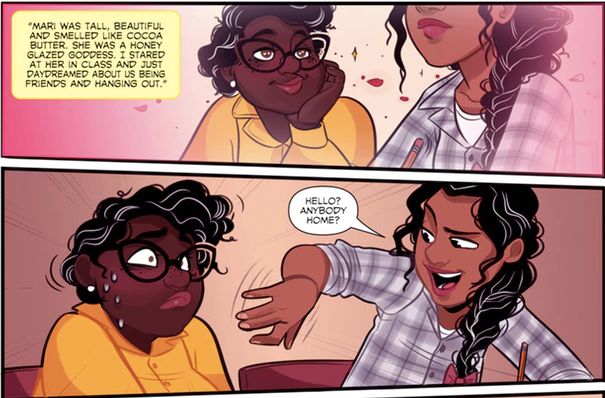
Black women often go underrepresented in a multitude of mediums — but black, queer women in their 60s on print? Unheard of.
So when writer Tee Franklin penned elderly QTPOC (Queer and Trans People of Color) in her visionary comic, Bingo Love, which centers around two queer black women, the internet was understandably awestruck. In the comic, Hazel Johnson and Mari McCray fall in love as teenagers in the year 1963, but fate had a lot of plans for them. Of course, the LGBTQ community was not as accepted as it is now, making the 80-page story all the more controversial.
The comic is a big win for representation, as black queer romance in comics is hard to come by. In mainstream comics, Inverse; reports that Marvel’s Black Panther: World of Wakanda is the only series to present romance between two black queer women. Aside from this, there are simply too few QTPOC in either Marvel or DC Comics — most of whom are partnered with white queer characters. Representation for black women in general is also often done wrong. For instance, Marvel; received flak in 2016 for depicting a black teenage girl in an extremely sexualized manner. All this makes Franklin’s comic even more remarkable in this day and age.
To provide a little bit of background: Hazel and Mari meet as teenagers, forming a tight relationship and eventually falling in love. Their families, however, find out, and consequently ban them from seeing each other again. From that point on, the women lead separate lives, marrying men whom neither love. Later in life, Hazel and Mari reunite at a bingo hall — a fitting coincidence, as that is where Hazel first saw Mari all those years ago. Foxy Bingo‘s guide to this popular yet simple game notes how players win by forming winning patterns on their bingo cards, such as vertical and horizontal lines, small diamonds, or even a full diamond. But the game presented a much better prize for Mari and Hazel — each other.
After years of separation, old feelings resurfaced, and they divorced their husbands to live out their truth as a married couple, a light in which audiences rarely see elderly black women. Their love story extends all the way to 2030.

Franklin’s story draws on her own experience with her sexuality. After keeping it a secret for so long, she says that this is also a way for her to come out to her extended family as bisexual.
“I know that there are black women and men who have had to hide their sexuality due to the time era and I know that there are some that are still hiding it,” Franklin said. “As someone who’s been married, sometimes you stay for the kids ― even though you know that the love is gone. Hiding your sexual orientation for decades and not truly being happy inside is what I wanted to touch on with this story.”
But not only does Bingo Love touch on same-sex romance, it also goes into elderly love — something we’ve only seen popularized in the likes of UP, with Carl and Ellie.
To publish Bingo Love and share this charming story, Franklin started a Kickstarter; campaign to raise $19,999 for herself and the creative team — artist Jenn St-Onge, colorist Joy San, letterer Cardinal Rae, and editor Erica Schultz. Just five days later, the goal was reached, and by the end of the campaign, 1,950 backers pledged $57,148 to the project.
“Love has no boundaries and it lasts forever. If there can be an Ellie and Carl from Disney’s Up, there can be a Hazel and Mari in Bingo Love,” Franklin shares. “The only superpowers Hazel and Mari have is the confidence to leave their past lives in their 60s and spend the rest of them together living their life to the fullest.”
